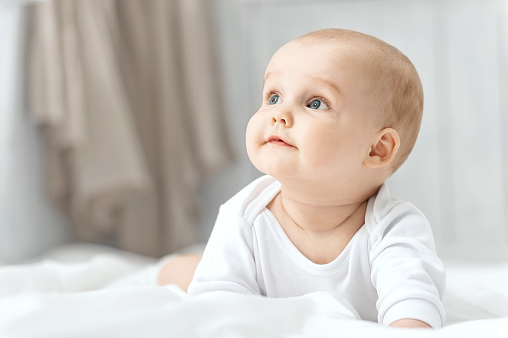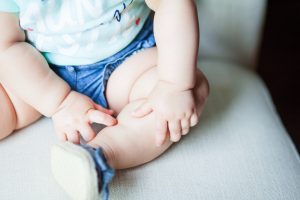
In premature infants, both Enfamil, a baby formula manufactured by Mead Johnson, and Similac, a baby formula manufactured by Abbott Laboratories, can cause necrotizing enterocolitis (NEC). This gastrointestinal condition, necrotizing enterocolitis (NEC), is severe and causes intestinal tissue death. It may even be fatal in as many as 50% of cases. In addition, the intestinal inflammation caused by this horrible condition may cause holes in the intestine. It is even possible for bacteria from the intestinal tract to leak into the abdomen or blood, causing severe illnesses or deadly blood infections. The condition can also cause severe health issues like sepsis, intestinal strictures, developmental problems, and cerebral palsy.
A study in Lancet, 1990, found that this horrendous condition NEC was up to 10 times more likely in premature infants given formula. In recent years, several studies have linked cow’s milk-based formula to an increased risk of NEC in premature infants, based on cases filed against baby formula products.
Similac and Enfamil manufacturers are facing lawsuits from parents because they were aware or should have been aware that their baby formula products could cause necrotizing enterocolitis (NEC) in premature infants. In addition, these companies did not warn parents or medical providers about the risk. According to the parents who sued, Enfamil and Similac failed to indicate that NEC is a possible side effect of their baby formulas or provide proper instructions or guidelines on using the product. As an added concern, these companies marketed their baby formula products as safe and beneficial for premature infants despite potential risks.
 Texas Injury Lawyers Blog
Texas Injury Lawyers Blog




 Self-driving, or autonomous cars, are revolutionizing the way the public looks at travel and car ownership. These vehicles turn active drivers into passive passengers, allowing motorists to rely on the car’s advanced computerized system to navigate the roads and avoid collisions. However, these cars may result in a serious Texas car accident, as the new technology is still being refined.
Self-driving, or autonomous cars, are revolutionizing the way the public looks at travel and car ownership. These vehicles turn active drivers into passive passengers, allowing motorists to rely on the car’s advanced computerized system to navigate the roads and avoid collisions. However, these cars may result in a serious Texas car accident, as the new technology is still being refined. In light of COVID-19, everyone seems to be shopping online more frequently. Whether you’re shopping online to adhere to social distancing concerns or simply out of boredom, Amazon has become an important part of regular online shopping trips in many households. When a product purchased from the online retailer, however, injures someone in your family, is Amazon liable in a Texas products liability lawsuit? Or is the entity or individual who sold you the product responsible?
In light of COVID-19, everyone seems to be shopping online more frequently. Whether you’re shopping online to adhere to social distancing concerns or simply out of boredom, Amazon has become an important part of regular online shopping trips in many households. When a product purchased from the online retailer, however, injures someone in your family, is Amazon liable in a Texas products liability lawsuit? Or is the entity or individual who sold you the product responsible? Pre-prepared and packaged baby food has served as a convenient option for busy parents of infants and toddlers for decades. As parents, we only want what is best for our children, and we should be able to trust that the products we purchase for them to put into their bodies is safe and nutritious. When these food products contain contaminants that could be toxic, this oversight could lead to serious personal injury or even death to those most vulnerable. In certain cases, dangerous food products may give rise to a Texas product liability lawsuit.
Pre-prepared and packaged baby food has served as a convenient option for busy parents of infants and toddlers for decades. As parents, we only want what is best for our children, and we should be able to trust that the products we purchase for them to put into their bodies is safe and nutritious. When these food products contain contaminants that could be toxic, this oversight could lead to serious personal injury or even death to those most vulnerable. In certain cases, dangerous food products may give rise to a Texas product liability lawsuit. When a consumer purchases a new product, they rightfully trust that the designer, manufacturer, and retailer took measures to ensure the product’s safety and efficacy. However, despite testing standards and federal oversight, some dangerous products make their way into the consumer stream. Products with a design or manufacturing defect or that are inherently dangerous may cause serious injuries and lead to a Texas product liability lawsuit. The United States Consumer Product Safety Commission (USCPSC) requires manufacturers, distributors, and similar entities to report any issues with their products and issue recalls if necessary. However, these parties may still face liability even if they issued a recall.
When a consumer purchases a new product, they rightfully trust that the designer, manufacturer, and retailer took measures to ensure the product’s safety and efficacy. However, despite testing standards and federal oversight, some dangerous products make their way into the consumer stream. Products with a design or manufacturing defect or that are inherently dangerous may cause serious injuries and lead to a Texas product liability lawsuit. The United States Consumer Product Safety Commission (USCPSC) requires manufacturers, distributors, and similar entities to report any issues with their products and issue recalls if necessary. However, these parties may still face liability even if they issued a recall.